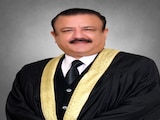A jury was unable to reach a verdict in the fraud trial of two brothers, both recently graduated from the Massachusetts Institute of Technology, who were accused of stealing roughly $25 million in cryptocurrency from traders on the Ethereum blockchain.
US District Judge Jessica Clarke declared a mistrial Friday in the case against James Peraire-Bueno, 29, and his brother Anton, 25, after a highly technical three-week trial. Jurors deliberated for three days, but they told the judge they would be unable to reach a unanimous decision.
The mistrial is a setback for prosecutors who have sought to define rules of the road in some of the darker corners of the crypto universe. Prosecutors, who declined to comment on the ruling, told Clarke they needed more time to consider whether to seek a new trial for the brothers.
In a note to the judge late Friday, jurors cited the "emotional burden" they were under, adding that half of them had spontaneously broken down in tears at one point during deliberations. Some jurors also reported multiple nights of sleeplessness.
Earlier in the day, jurors told the judge they were struggling with deliberations and asked for guidance. Lawyers for the Peraire-Bueno brothers urged Clarke to declare a mistrial but she sent the jury back to the deliberation room with dinner menus.
Judges are often reluctant to declare mistrials and instead urge members of the jury to work through their differences. But Clarke made it clear she thought any more deliberation would be a waste of time given the number of notes jurors had sent back and the emotional toll they had described.
"There's rarely a jury note that is more clear," said Patrick Looby, a lawyer for James Peraire-Bueno. "This is a mistrial."
'Sandwich Attacks'
The trial had focused on controversial crypto trades known as "sandwich attacks," which use bots to place large trades before and after another user's transaction. The attacker profits by selling immediately after driving up the price at the expense of the sandwiched user.
The brothers, who developed a complex strategy to seize attackers' funds, argued their actions were fair game in an unregulated market. The government contended their actions were a straightforward theft.
One of the jurors, who was interviewed Friday and asked that their name not be used, said the jury was aligned on the facts of the case, but struggled to understand how to apply it to the law.
James and Anton's parents and another brother, Alexander "Olek" Peraire-Bueno, sat in the front row of the gallery for the entirety of the trial and held a vigil in the courthouse during the three days of deliberations. During closing arguments on Tuesday, more than a dozen of the brothers' friends and classmates appeared in court to show their support.
Anton, who was seated directly behind his family, received hugs and kisses from his parents after the mistrial was declared. Their father, Jaime Peraire, a prominent professor of aeronautics and astronautics at MIT, sobbed in the courtroom as lawyers for both parties filed out.
The crypto community was divided over the decision to charge the brothers.
Though sandwich attacks aren't illegal, they've long been controversial among Ethereum users. Some cheered the Peraire-Buenos' exploit as giving sandwich attackers a taste of their own medicine.
According to prosecutors, the brothers studied the trading strategies of sandwich bots and developed an elaborate plan to bait them into an attack. When they did, the Peraire-Buenos used an "exploit" in open-source software widely used by traders in the Ethereum network to seize money the bots had invested.
The trading firms behind sandwich attacks have operated in secrecy, but one emerged from the shadows to testify against the Peraire-Buenos as a government witness. David Yakira, the chief executive officer of Savannah Technologies, an Israeli crypto firm whose bots were targeted by the brothers, told the jury how he reacted.
"You go to bed with $14 million, you wake up with nothing," Yakira said. "It's not an easy experience."
He said bots operated by Savannah Technologies propose upwards of 10,000 transactions per day and use open-source Ethereum software to ensure the security of their trades.
"This event that happened," Yakira said, "is a singular event in the history of Ethereum."
Defense lawyers argued that the Peraire-Buenos used a legitimate, if aggressive, trading strategy.
"The brothers should be celebrated, not vilified," said Daniel Marx, an attorney for Anton Peraire-Bueno.
The case is US v. Peraire-Bueno, 24-cr-293, US District Court, Southern District of New York (Manhattan).
(Except for the headline, this story has not been edited by NDTV staff and is published from a syndicated feed.)















